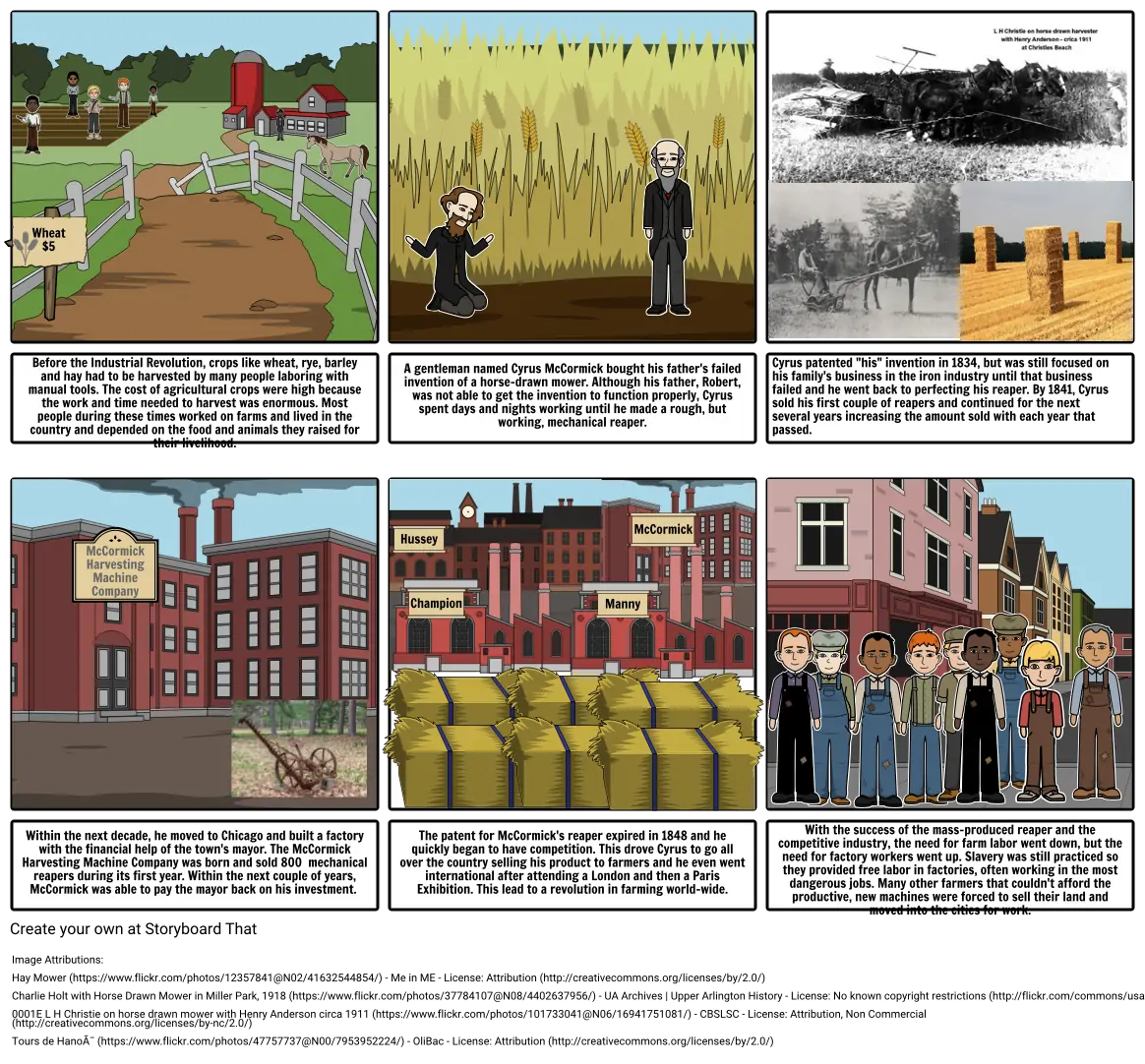Jett Tatro U2L12 Portfolio

Storyboard Description
Cyrus McCormick and the Mechanical Reaper - Revolutionized Agriculture
Storyboard Text
- Wheat $5
- Before the Industrial Revolution, crops like wheat, rye, barley and hay had to be harvested by many people laboring with manual tools. The cost of agricultural crops were high because the work and time needed to harvest was enormous. Most people during these times worked on farms and lived in the country and depended on the food and animals they raised for their livelihood.
- McCormick Harvesting Machine Company
- A gentleman named Cyrus McCormick bought his father's failed invention of a horse-drawn mower. Although his father, Robert, was not able to get the invention to function properly, Cyrus spent days and nights working until he made a rough, but working, mechanical reaper.
- Hussey
- Champion
- Manny
- McCormick
- Cyrus patented "his" invention in 1834, but was still focused on his family's business in the iron industry until that business failed and he went back to perfecting his reaper. By 1841, Cyrus sold his first couple of reapers and continued for the next several years increasing the amount sold with each year that passed.
- Within the next decade, he moved to Chicago and built a factory with the financial help of the town's mayor. The McCormick Harvesting Machine Company was born and sold 800 mechanical reapers during its first year. Within the next couple of years, McCormick was able to pay the mayor back on his investment.
- The patent for McCormick's reaper expired in 1848 and he quickly began to have competition. This drove Cyrus to go all over the country selling his product to farmers and he even went international after attending a London and then a Paris Exhibition. This lead to a revolution in farming world-wide.
- With the success of the mass-produced reaper and the competitive industry, the need for farm labor went down, but the need for factory workers went up. Slavery was still practiced so they provided free labor in factories, often working in the most dangerous jobs. Many other farmers that couldn't afford the productive, new machines were forced to sell their land and moved into the cities for work.
Image Attributions
- 0001E L H Christie on horse drawn mower with Henry Anderson circa 1911 - CBSLSC - (License Attribution, Non Commercial )
- Charlie Holt with Horse Drawn Mower in Miller Park, 1918 - UA Archives | Upper Arlington History - (License No known copyright restrictions )
- Hay Mower - Me in ME - (License Attribution )
- Tours de Hanoï - OliBac - (License Attribution )
Over 30 Million Storyboards Created

